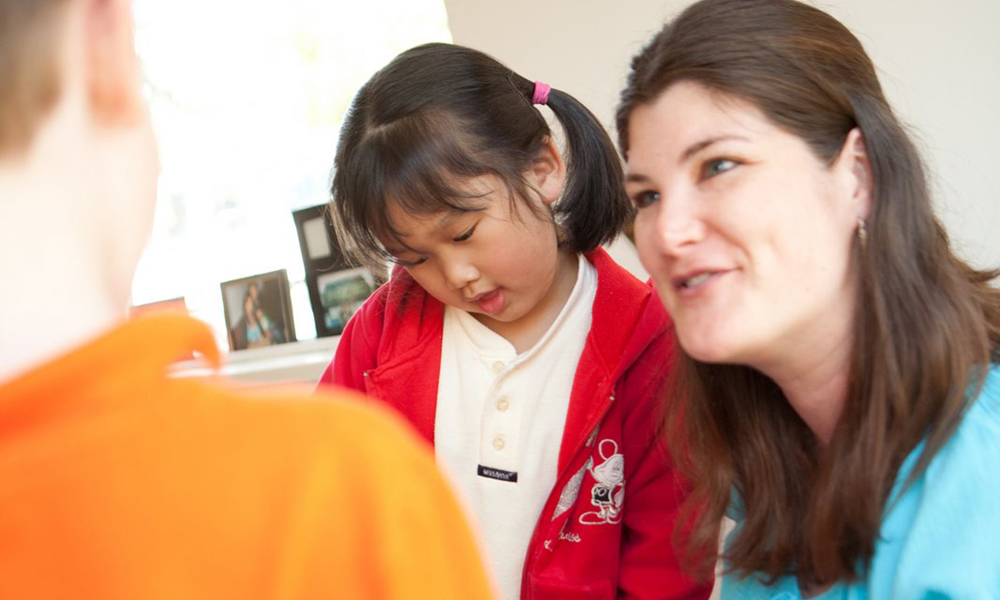
Maryam, the Director of our Reggio-Inspired Learning Centre, shares some of her thoughts on how the language we use with children can have a huge impact.
Educators in the Early Years field tend to be very cautious about what we say to children. We try to be sensitive and compassionate with our words. We try to be non-judgmental and encouraging.
But there are everyday phrases out there that can have serious negative impacts on children. We may or may not use them ourselves, but they are so common in our society that our children somehow learn them – and believe them.
As educators, I believe it is our responsibility to pay attention to these phrases, to encourage children to think about them critically when they hear them, and to advocate for our society to use positive, more meaningful language with children. This applies even when we’re speaking with other adults, but children are present.
The phrase I’m writing about here is one we have all heard: “you get what you get and you don’t get upset”.
The trouble with phrases like this is, since they are used so often, we don’t pay attention to the message they are sending. One may even say, “Well yes, you get what you get, that’s life”.
But what are we really telling our children when we say this?
We are telling children that whatever life brings to you, whatever people do to you, whatever you get is all that you deserve and is all that you are ever capable of achieving; so be happy with what you have, say thank you, and move on.
That if women get paid less than men in our society, they should be satisfied with it and they should not “complain”.
That if groups of people are discriminated against and treated poorly, they deserve what they get and should be happy with their “fair share”.
We are teaching our children that they should never want more, ask to have choices, think about what their bodies and minds need; that they should never argue, complain, fight back; that they should always be submissive and accept what they get, never working harder for a better outcome.
It is frightening to see how much a very common phrase can affect a child’s mind and beliefs, and how much of it they will carry into their lives as youth and adults.
This leaves educators and parents with the difficult task of unpacking and deconstructing. As a parent, I find myself trying to wipe these kinds of phrases – these ways of thinking – out of my daughter’s mind, defending the space for her to think critically for herself. I believe this is our task as educators as well.
Perhaps the next time we hear someone say this, we can pause and reflect with the children.
Perhaps we could tell children that yes, sometimes in life resources are limited and we don’t get our first choice, but we still have other options. Maybe we can trade what we got with someone who is unhappy with what they got. Maybe we can try to see how we can increase the resources, so they are not so limited.
Perhaps we could acknowledge the children’s feelings and tell them it is alright to feel disappointed or defeated – feelings are an important part of our beings. When we feel discouraged or sad, these feelings can encourage us to work harder, to fight back, to address the problem.
However we decide to reflect on the situation, we can teach our children that it is never OK to stand back and watch unjust situations silently. We can teach them that they have the right to speak up when they are upset about something. That they should never have to feel that they only deserve what they are given.
It may be a difficult task, but we can start by not using damaging phrases like these ourselves, and by helping children think about them critically before believing in them or repeating them.
